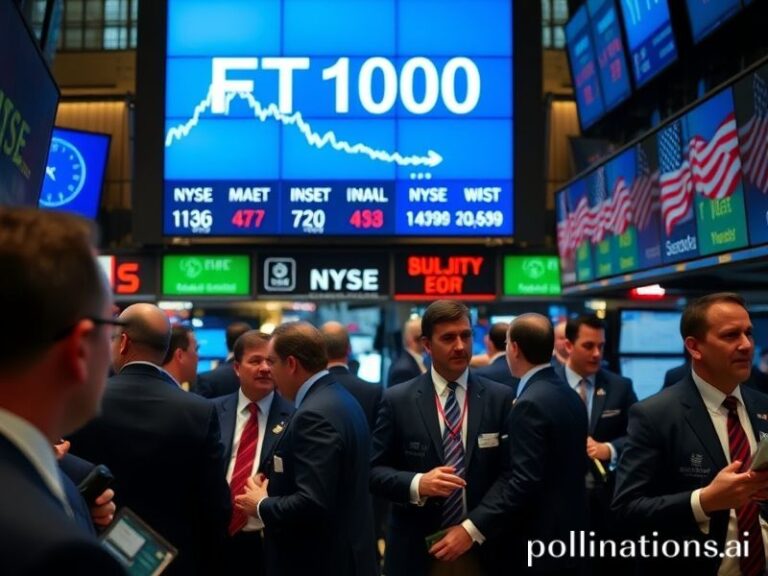Sale Sharks Gone Global: How $500 Billion in Scams Became the World’s Fifth-Largest Economy
**Predators in the Bargain Bin: How Sale Sharks Circle the Globe**
The term “sale sharks” once conjured images of rugby players in Manchester rain. Today it describes a far more dangerous breed: the predatory operators who stalk global markets with the patience of crocodiles and the ethics of piranhas. From Lagos to London, these creatures have evolved into a transnational species, feeding on desperation with the efficiency of a Silicon Valley algorithm.
Consider the Nigerian prince who now speaks fluent Mandarin. Or the Delhi call-center graduate who can mimic a Berlin tax inspector with Oscar-worthy precision. These aren’t your grandfather’s con artists—though grandfather probably lost his pension to their predecessors. Today’s sale sharks operate in coordinated pods, swimming through the digital currents that connect Mumbai’s slums to Manhattan’s penthouses, unified by one glorious truth: humanity’s stupidity is the only truly renewable resource.
The pandemic proved their finest hour. As the world cowered behind laptop screens, sale sharks evolved faster than the virus itself. They sold counterfeit vaccines to Panamanian officials, peddled imaginary PPE to British hospitals, and convinced Australian pensioners that bitcoin could cure COVID. One particularly enterprising syndicate in Kyiv sold the same non-existent ventilators to three different countries while actual bombs fell outside their windows. Even war, it seems, cannot interrupt a good hustle.
But here’s where it gets delightfully dark: these predators are merely the mirror image of our legitimate financial ecosystem. Is the Shenzhen seller offering “genuine” iPhones for $50 really that different from your local pharmaceutical giant marking up insulin by 5,000%? Both understand the same fundamental principle—value is whatever desperate people will pay to believe in. The only difference is paperwork.
The global implications are staggering. Sale sharks now move an estimated $500 billion annually—roughly Finland’s GDP, though Finland actually produces things like Nokia phones and melancholy. This underground economy has become the world’s fifth-largest, right between Germany and California, except it pays no taxes and answers to no one. International law enforcement agencies coordinate raids like underwater ballet, but for every shark they net, three more appear, operating from internet cafes in Moldova or mother’s basements in Milwaukee.
The broader significance? We’ve created a perfect ecosystem for these creatures. Global inequality provides endless prey. Digital anonymity offers perfect camouflage. And our collective faith in too-good-to-be-true deals supplies the chum that keeps them circling. They’re not destroying the system—they’ve become the system’s most efficient component, stripping wealth from the gullible with the precision of investment bankers, but without the overhead of Manhattan offices.
Perhaps most ironically, sale sharks have become accidental geopolitical players. North Korea’s cyber units fund missiles through fake Viagra sales. Russian oligarchs launder sanctions through fraudulent cryptocurrency schemes. Even ISIS got into the game, running fake charity scams until they realized extortion paid better. In our interconnected world, even terrorists outsource their grifting.
As climate change creates new desperation and AI generates more convincing lies, these predators will only grow bolder. They’re the ultimate adaptation to modern capitalism—creatures that have evolved to thrive in the space between regulation and innovation, between hope and reality. They understand what the rest of us refuse to acknowledge: in a world where attention is currency, the best business model is simply convincing people to give you theirs.
The sale sharks aren’t coming. They’ve already arrived, swimming through our inboxes, our social media feeds, our endless appetite for something for nothing. And like any successful species, they’ll endure long after their prey has learned better—because by then, new prey will have evolved, ready to believe that this time, the deal really is too good to pass up.







